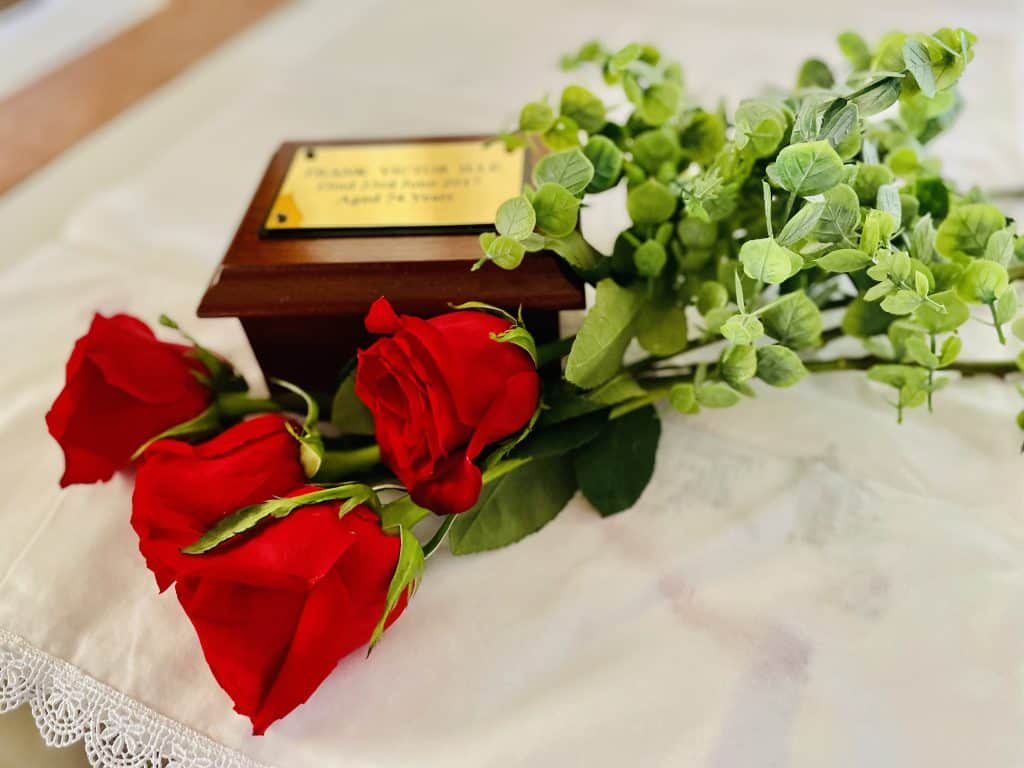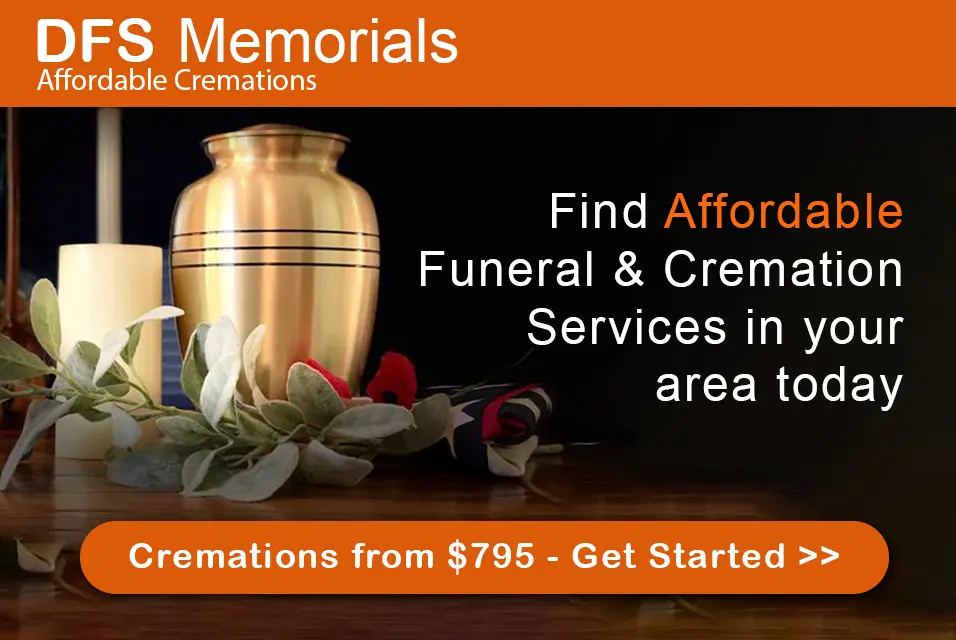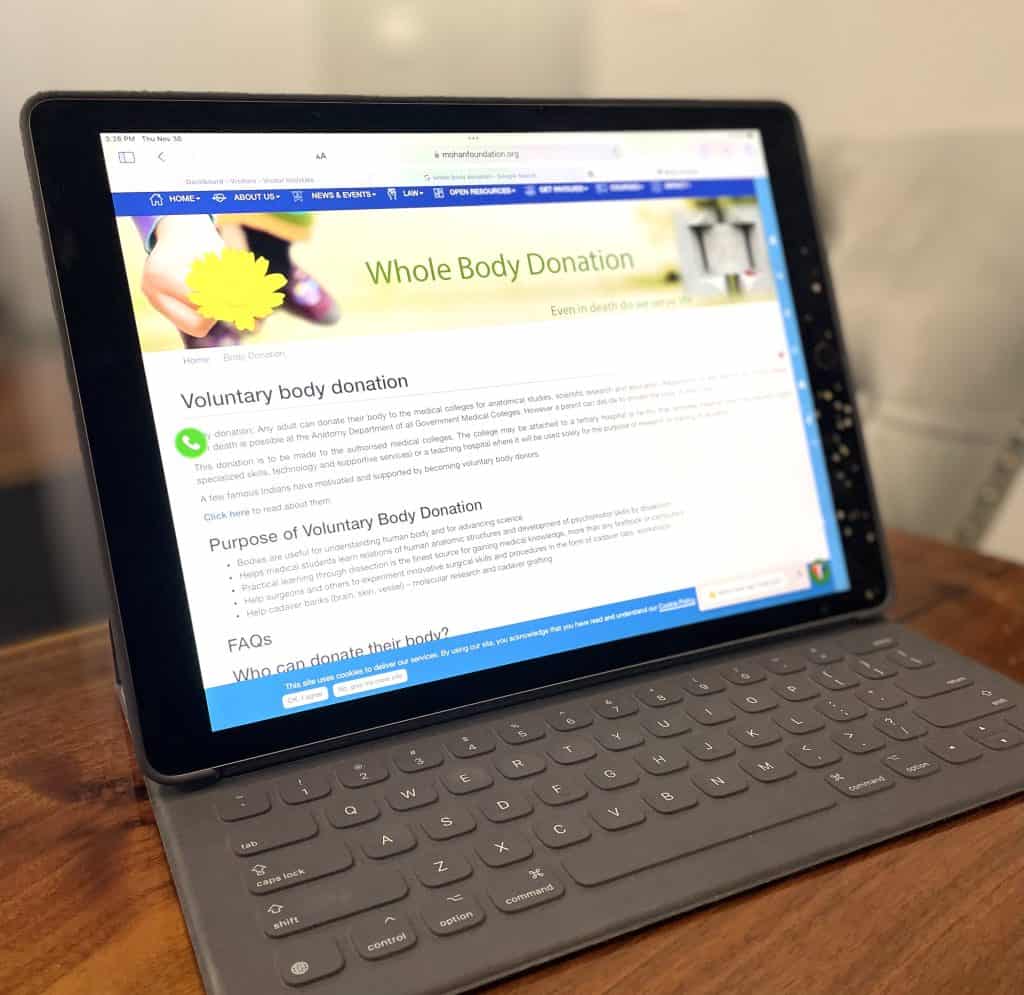Direct Cremation or Donating a Body to Science
When it comes to dealing with a deceased person, various options are available, each with its own costs and considerations. Two of the least expensive methods are direct cremation and body donation programs. It’s important to note that not everyone may qualify for body donation. For this reason, we recommend contacting a local funeral home/cremation provider first. Many providers can advise you about local body donation programs where you live.
Direct Cremation
Direct cremation involves the immediate cremation of the deceased without any funeral or viewing services. It is typically the most affordable option, with prices starting at $795. Direct cremation is less expensive than traditional burial or other funeral options. The cost primarily covers the cremation process, transportation, and basic services provided by the funeral home or crematory. Direct cremation offers a straightforward and simple process, and the deceased’s ashes are usually returned to the family within a week or two.
Find your nearest Direct Cremation provider and their Direct Cremation Cost.
Body Donation Programs
Body donation programs involve donating the deceased person’s body to medical research or education institutions. These programs may cover the cost of cremation and return the cremated remains to the family after the research or educational use. The usual time span for returning the ashes to the family after a body donation is between one and six months.

Some important points to consider are Eligibility and Pre-Planning: Not everyone is eligible for body donation programs, as certain criteria must be met. Pre-existing health conditions and low or high body mass index (BMI) may exclude a deceased person from being accepted for body donation programs.
Additionally, pre-planning is often required, as the deceased person must express their wish to donate their body before passing away.
Several national companies offer anatomical donations directly to the public. This can be considered by low-income families struggling with managing funeral costs or by people who want to help progress medical science. Also, many State Medical Schools and Universities will offer a body bequeathal program.
It would be best to do some research to determine which program best suits your needs. Some programs are restricted to operating in certain States. Many funeral service providers now partner with an anatomical donation program to better serve their client families.
Choosing between direct cremation and body donation programs depends on personal preferences, beliefs, and financial considerations. While direct cremation offers a more immediate and cost-effective solution, body donation programs provide an opportunity to contribute to medical research and education. Families should carefully evaluate their options and consider the deceased person’s wishes when making this decision.
To locate a local Direct Cremation provider, visit DFS Memorials, a network of affordable cremation and funeral service locations offering a low-cost direct cremation service option.
Visit our Guide to Choosing a Body Donation Program for more concise information about Body Donation options.
Read on to evaluate how you compare the options and decide between low-cost direct cremation or body donation as “no-cost” cremation.
Direct Cremation or Free Cremation with Body Donation?

Let us clarify a few key points to understand these two options better. First and most important is to ensure we define what is meant by offering a free or no-cost cremation with a donation. Suppose a national anatomical donation company accepts your loved one for donation. In that case, they do ordinarily cover ALL costs, including the collection and transportation of the deceased to a facility, post-donation cremation, and the return of the cremated remains by mail.
Local Universities or Medical Schools that offer anatomical donation programs may NOT cover all costs associated with a body donation. For example, they can require that the family use the services of a funeral home to transport the deceased to the University facility for donation. A funeral home will charge a transportation fee for this service. Sometimes, there is a small charge for processing the necessary legal documents, such as death certificates and transit permits.
Secondly, body donation is often a ‘supply and demand’ sector. Meaning that acceptance of donors at the time of passing can be affected by capacity levels at Institutions in their State or Region. The volume of recent donations and local training and research needs can determine this. No anatomical donation company or University will guarantee acceptance onto a program at the time of death, even if a donor had pre-registered.
Thirdly, you must consider the circumstances of the deceased’s health and weight and the condition of the body at the time of death. As mentioned, some pre-existing health conditions exclude individuals from donation, and certainly weight is a factor. Obesity and a high Body Mass Index (BMI) are most likely to exclude an individual from a body donation program.
Note: Many body donation programs will accept certain health conditions for research purposes. We cover this in more detail in our Guide to Body Donation.
So, you do need to evaluate the pros and cons of opting for a body donation, including what possible transport charges you may incur, the likelihood of a donation being accepted, and the time frame for having the cremated remains and death certificate returned to the next of kin.
As suggested, we recommend contacting a local funeral home to discuss your interest in body donation, as many funeral directors have more detailed knowledge of availability in their area.
Direct cremation may be your ‘best’ low-cost option.

As a donation is not guaranteed acceptance at the time of death, it is usually recommended to have a ‘Plan B.’ In other words, do not just rely on opting for body donation. But, have identified what disposition plan there is if a donation is declined.
Knowing how to find a low-cost direct cremation can be vital. The benefits of opting for a direct cremation also mean that the surviving family remains in control of the cremation process and will have the cremated remains back within 1-2 weeks, along with death certificates, etc. So, any estate closure or memorialization can be undertaken in a swifter time frame than is likely with a body donation.
Considering that a direct cremation can generally be conducted for between $795 and $1,195 (in many areas), this is the most affordable disposition for families needing to manage costs.
DFS Memorials is a network of low-cost cremation providers. Visit DFS Memorials to find your nearest provider and their direct cremation cost.
What is a “No cost” cremation?

Although most funeral homes will not mention this, getting a cremation for free is possible. Donating a body to science for research is one way of getting a cremation for no cost. Several national anatomical donation companies typically use the term “no-cost” cremation.
The body is used for research by the medical profession. It is then cremated, and the ashes are returned to the family at no cost.
Acceptance of a whole-body donation can depend upon the logistics of the place of death and transfer to a suitable institution and the donor’s health history.
Therefore, an alternative option should be prepared if a donation is not accepted.
Is there any state financial assistance for cremation expenses?

You can check with your local County Human or Social Services. They can advise you of what may be available locally and if you would qualify. In some states, recipients of Medicaid and those in hospice or nursing care may qualify for discounts or even reimbursements toward funeral costs. If your loved one was a recipient of Medicaid, ask your funeral director what help may be available.
Use our guide on financial assistance for poor or low-income families to see what help is available near you.
Some states aid residents on welfare programs, although it can be limited, with stringent qualifying criteria, and many families find they do not qualify.
You should also consider if your loved one would have qualified for the Social Security lump-sum death benefit. If so, the funeral director will assist you with making a claim, which can be used towards the funeral cost. The amount paid by Social Security is $255.
There is some assistance for Veterans. The VA Administration will help, and a Veteran is entitled to a free plot and marker. Some funeral service providers will offer additional ‘military service’ discounts and benefits, such as free death certificates or a reduced rate on a cremation. But, this is at the discretion of the funeral home.
In April 2021, Congress passed legislation to release funds to assist families with Covid-related funeral expenses. FEMA (Federal Emergency Management Agency) is authorized to receive and process claims.
If you lost a loved one due to COVID-19 after January 20th, 2020, you might qualify for a refund of funeral expenses paid out. Visit this guide to claiming FEMA Funeral Assistance to learn more.
It IS possible to arrange a low-cost cremation or even get a free cremation with a body donation, but it is important to weigh up the pros and cons and determine what is the best option for the family given the circumstances at the time of passing.
Check out our guides to Creating Your Own Memorial Tributes and Conducting an Ash-Scattering Ceremony for more money-saving ideas.

